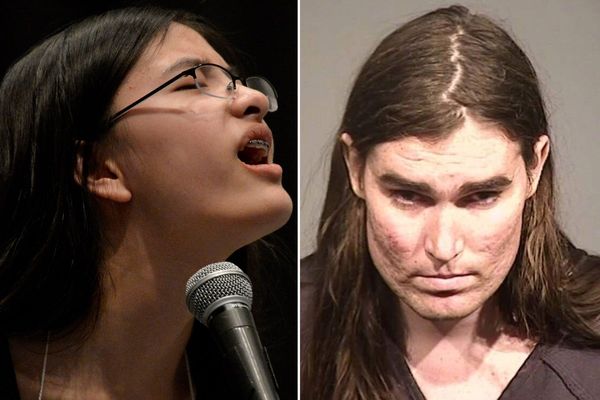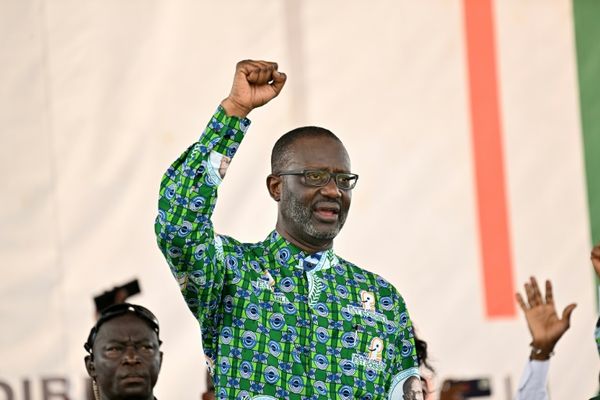
A lot of people have played guitar with Ozzy Osbourne. They are not all here. In the interests of keeping this list shorter than a book, we’ve restricted it to people who were hired, however briefly, for Osbourne’s solo band.
That means there’s no Tony Iommi, Black Sabbath’s towering God of Riff. Nor are any of the superstars who guested on Ozzy's last two studio albums: Slash, Tom Morello, Jeff Beck, Eric Clapton, and Mike McCready are all guitar giants in their own right, but only footnotes in the Osbourne story.
There are three guitarists who also missed out on being here by the narrowest of margins. Robert Sarzo, brother of Ozzy bassist Rudy, was hired by Ozzy and Sharon to replace Randy Rhoads. Unfortunately for Sarzo, Sharon’s dad and Ozzy’s label boss, Don Arden, had already offered the gig to Bernie Tormé.
Dokken guitarist George Lynch was hired in 1982 and got as far as traveling with the band and performing at soundchecks. He was unceremoniously dumped in front of Jake E. Lee.
Steve Vai, meanwhile, was hired in 1995 to co-write one song. He ended up getting on so well with Ozzy that the two schemed to make a full record, making an album’s worth of demos that were ultimately shelved.
These, then, are the guitarists who wrote and played on Ozzy’s classic albums and took part in his legendary tours.
Randy Rhoads – (1979–1982)
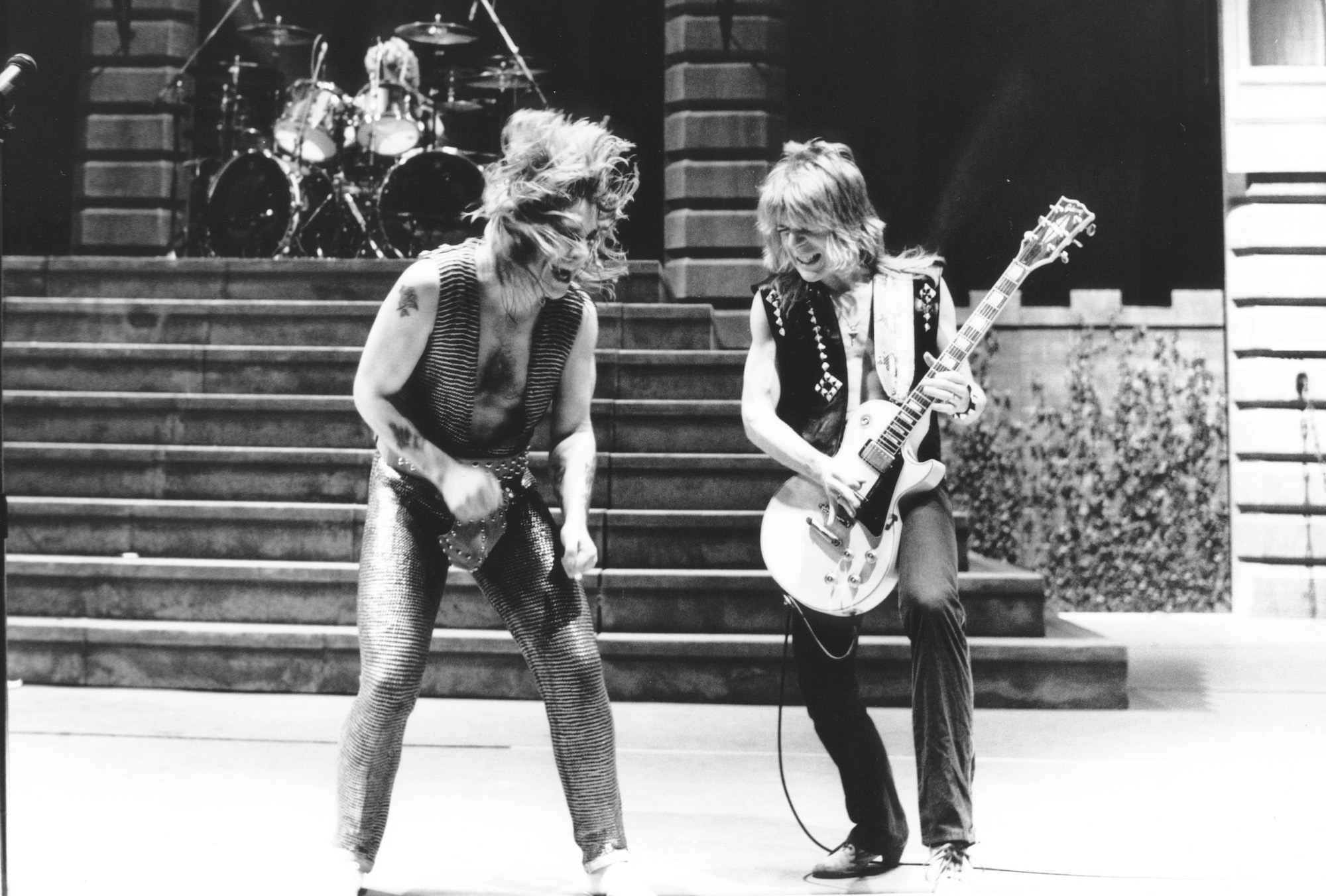
In just two albums, 1980’s Blizzard of Ozz and 1981’s Diary of a Madman, plus the posthumous live album Tribute (1987), Randy Rhoads set the bar for every subsequent Ozzy guitarist.
His combination of two-hand tapping, blazing legato, savage pinched harmonics, and demonic blues licks became essential vocabulary for shredders. He took the classic rock combo of a Les Paul and Marshall into the 80s, boosting it with the new MXR Distortion+ pedal, and modding the amp with cascading gain stages.
Rhoads’ last days with Ozzy were fraught. He was allegedly vehemently opposed to plans to record the live Sabbath covers album Speak of the Devil.
Ozzy drank heavily, and tensions became so bad that Rhoads had allegedly made plans to leave the band once the album was released. Whether this rift between Osbourne and his guitarist would have been healed can never be known. A plane crash ended Randy’s life on March 19, 1982. He was 25.
In a Guitar World interview conducted shortly before his death, Rhoads said that he felt his guitar journey was far from complete, opining, “For me, it's just flash that impresses the kids. I'm trying to make a name for myself as fast as I can.
“I wish I could take time and come up with something that nobody else has done. But that's gonna take a few years yet.”
In his brief career, though, Rhoads exerted a towering influence on metal guitar, neo-classical guitar, and on Osbourne’s sound. Alongside Eddie Van Halen, Randy Rhoads defined the sound of metal guitar for the 1980s.
Bernie Tormé – (1982)
While Ozzy and Sharon were making plans with Robert Sarzo, Don Arden (Ozzy’s former manager and owner of Jet Records, Ozzy’s label; also Sharon Osbourne’s father) had offered the gig to Gillan guitarist Bernie Tormé.
Quite why Arden’s choice overruled Ozzy’s is unclear. Perhaps inevitably, this was a brief union.
According to Rudy Sarzo’s memoir, Off the Rails, Tormé announced after a handful of shows that he would be returning to England to work on his solo album.
While Tormé’s tenure in the band was brief, it was impactful. A 15-year-old Zakk Wylde witnessed Ozzy with Tormé at Madison Square Garden. Of that experience, Wylde later wrote, “I told him how amazing his playing was that night and how he made everybody in the building feel as if Randy’s presence was with all of us.”
After Ozzy, Tormé formed a solo band, and went on to collaborate with Twisted Sister’s Dee Snider in Desperado. Tormé died in 2019, aged 66.
Brad Gillis – (1982)
Under pressure to find a replacement, Ozzy auditioned Night Ranger guitarist Brad Gillis in a hotel room and enlisted him to complete the Diary of a Madman tour.
“I first met Ozzy in the master suite at the Helmsley Palace Hotel in New York,” Gillis told Guitar World in a 2021 interview. “I had my red Strat, no amp, and played him Flying High Again.
“How surreal to be sitting at the edge of his bed, with him cross-legged on the floor singing up to me while I played the song! Once I got through the solo he jumped up, gave me a big hug, and said, ‘Brad, I love you. Pull me through.’”
Gillis shadowed Tormé on the tour until he was ready to take over. His performances on the tour were recorded for Speak of the Devil (released as Talk of the Devil in the UK), a live album released under duress and consisting entirely of old Black Sabbath material.
Despite its unpromising origins, Speak of the Devil won Gillis a lot of fans. He put his own stamp on the songs with an impressive tone from a stereo chorus and a pair of Mesa/Boogie Mark IIB amps.
After the tour, Gillis returned to Night Ranger, with whom he's released 13 studio albums to date.
Jake E. Lee – (1982–1987)
Lee was a former member of Ratt and Rough Cutt, as well as a glam metal band with possibly the most on-the-nose name of all time, Sexist. He had also auditioned unsuccessfully to join Dio when former Ozzy bassist Dana Strum recommended him to audition for Osbourne’s band.
Lee has said that Ozzy was unhappy with George Lynch’s performances in rehearsals, and Lee pipped him to the gig.
Lee recorded two albums, Bark at the Moon (1983) and The Ultimate Sin (1986), with Osbourne. The former's title track was Lee’s standout Ozzy performance, with its jet-fuelled riff and fearsome alternate-picked solo.
Lee claimed he had written much of the album and was unfairly denied songwriting credits. He refused to work on The Ultimate Sin until he had a contract guaranteeing him songwriting royalties.
Of Lee’s dismissal in 1987, Osbourne told Stereogum in a 2022 interview: “The way it went was, Randy Castillo, my old drummer, had started to turn me against him. It was very sad because I had no qualms with the guy. He was a great guitar player.”
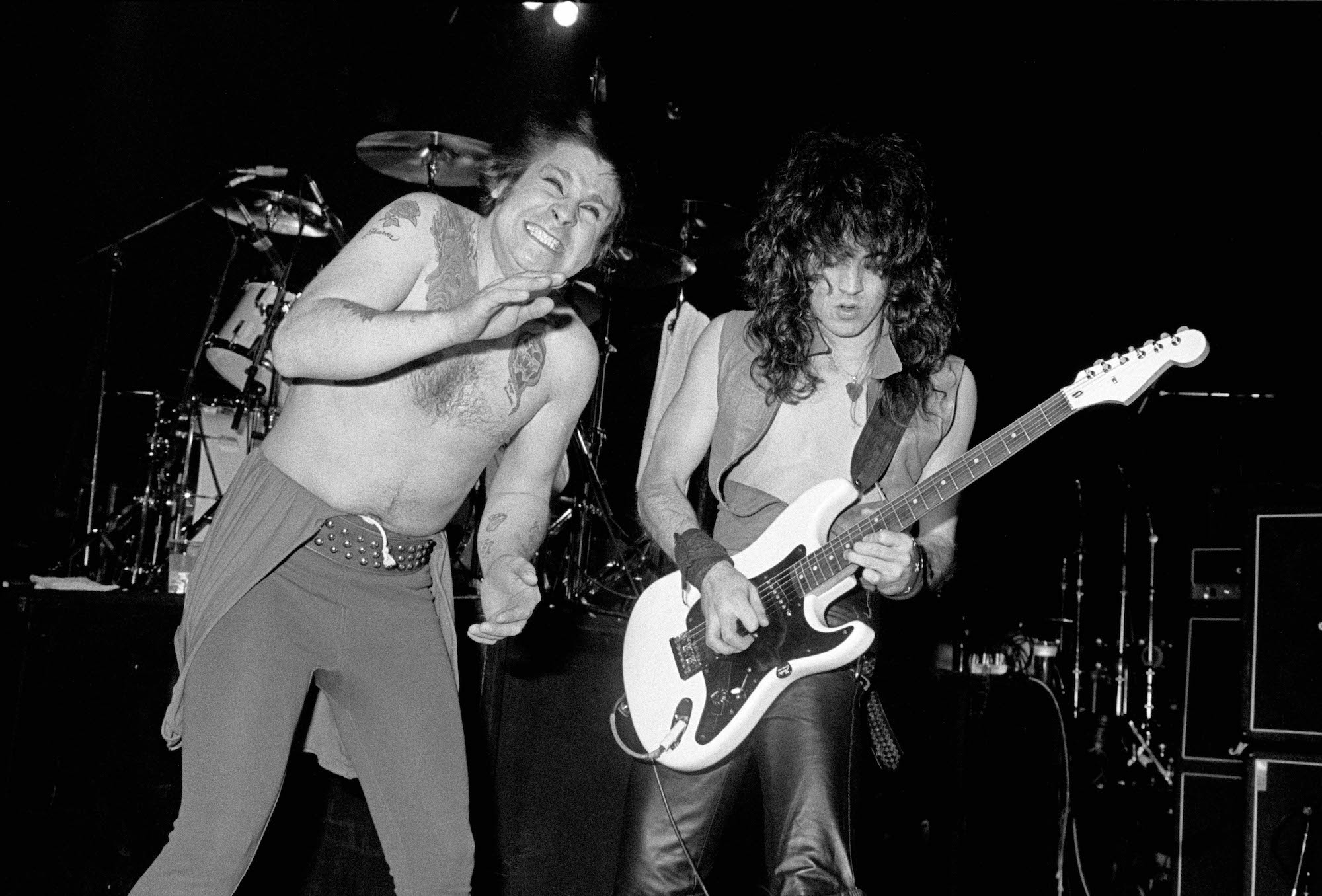
Lee, meanwhile, said in a 2018 interview that bassist Phil Soussan was “partly instrumental in getting me fired,” claiming that Soussan wanted to be Ozzy’s main songwriter, at Lee’s expense.
“I didn’t see it coming at all,” Lee told Guitar World in 2013. “In fact, it was my roommate, who was my tech at the time, who told me I was out of the band.
“He came back from the Rainbow [in Los Angeles] one night and he said, ‘Everybody’s talking about how you just got fired,’ So I called up Sharon [Osbourne], and I was like, ‘I just heard the weirdest rumor.’ She said, ‘Oh, my god. It’s true, it’s true.’ I went, ‘I’m fired?’ And she said, ‘Yes.’ My whole world got turned upside down.”
Lee went on to form Badlands. Since then, he has only sporadically released music with his bands Wicked Alliance and Red Dragon Cartel, whose last album dropped in 2018.
He has recently suffered from a complete lack of cartilage in his right hand, which has limited his ability to play. In October 2024, he said he was playing again and wanted to tour. Just days later, however, he was shot multiple times while walking his dog.
Though Lee is recovering well, understandably, there has not been much talk of new music from him.
Zakk Wylde – (1987–1993, 2001–2009, 2017–present)
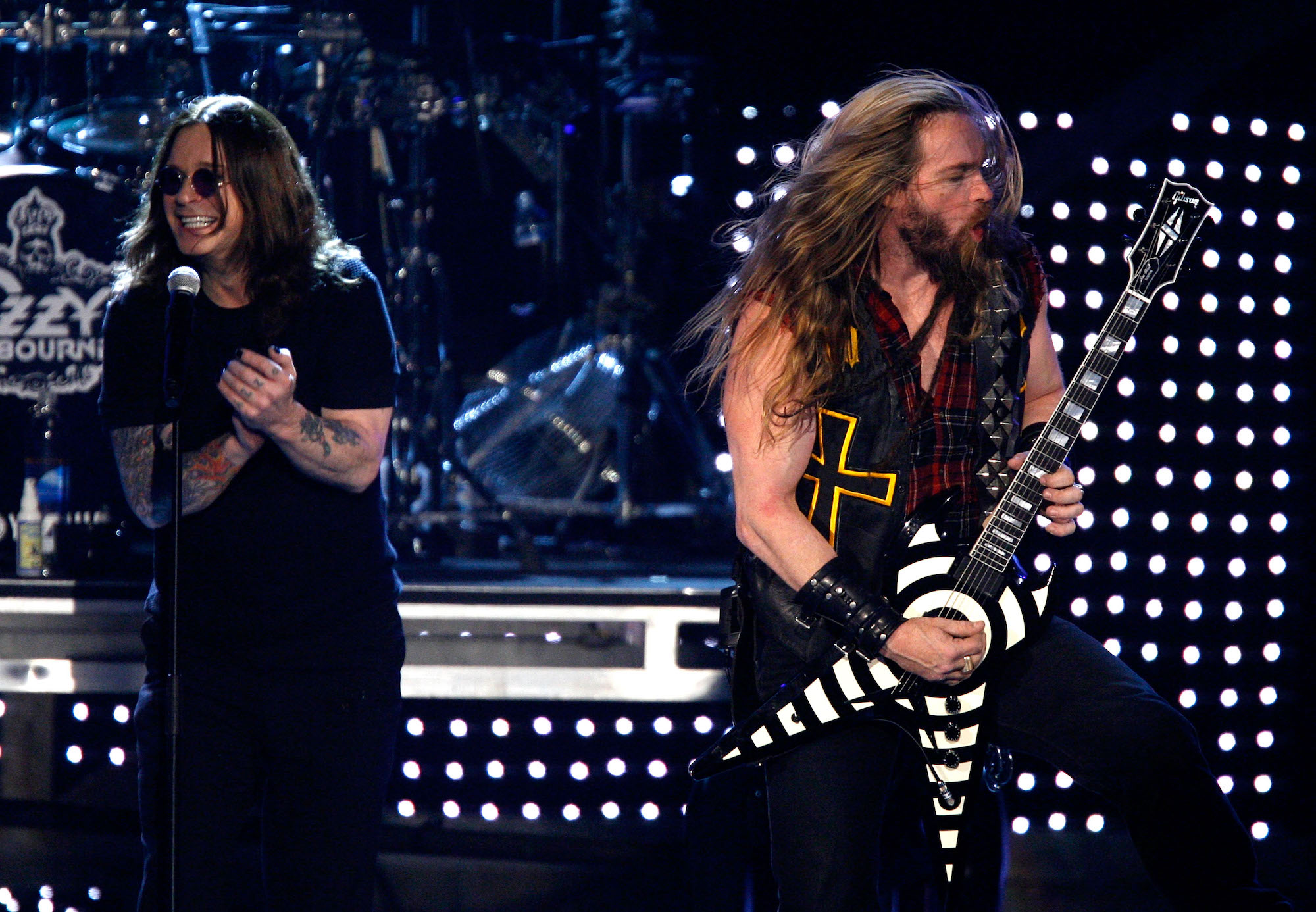
Although Randy Rhoads is usually considered the greatest Osbourne guitarist, Zakk Wylde is in many ways the definitive one.
Wylde has spent so many years with Ozzy that his unmistakable sound has become the one audiences expect from Osbourne’s band. And though many capable players have tried to fill his shoes, his larger than life persona and continued visibility on the metal scene has tended to overshadow his replacements.
Wylde’s initial run produced No Rest for the Wicked and No More Tears. These albums marked a strong return to form for Ozzy, earning multi-platinum awards and that mark of any great metal album, one-star reviews in Rolling Stone.
Speaking about how he was selected for the much-coveted role, Wylde told Guitar World in 1989, “When [Ozzy] auditioned guitar players, his big gripe was that most everyone played like Yngwie Malmsteen on acid, and that wasn’t what he wanted.”
After the live album Live & Loud, Wylde left to pursue solo projects Pride & Glory and Black Label Society. Wylde was never fully gone though, as he played the guitars on Ozzmosis, the one studio album Ozzy wrote and released between his first two stints in his band.
Alex Skolnick – (1995)
Skolnick managed a whopping one (1) concert with Ozzy during his tenure, making him the shortest-lived touring guitarist Ozzy ever had. Still, that’s one better than Robert Sarzo, George Lynch, or Steve Vai managed.
Skolnick had already left Bay Area thrashers Testament when he got the Ozzy audition. His Ozzy gig was an intimate one at the legendary Rock City club in Nottingham, England. Geezer Butler was the bassist.
“It was really cool,” Skolnick recounted to Guitar World in 2012. “It was one of these periods where Ozzy and Zakk Wylde had temporarily parted ways. He tried out a few different people, and I think I was the only one who made it as far as doing an unannounced show with him in England, and he told me I was hired.
“But, I later found out from Sharon Osbourne that they had also been looking at another guy, Joe Holmes, who ended up doing the tour. Then they brought Zakk back.”
After joining the elite group of musicians to have been fired over the telephone by Sharon Osbourne, Skolnick then formed a successful jazz trio and later rejoined Testament.
Joe Holmes – (1995–2001)
Holmes had experience filling big shoes. His first gig had been replacing Jason Becker in David Lee Roth’s touring band after Becker’s diagnosis with ALS. Prior to that, he had played with LA shock rockers Lizzy Borden.
Although Holmes never recorded an album with Ozzy, his stint with the band coincided with the rise of Ozzy’s mammoth Ozzfest tours. As a result, he has probably performed to more people with Ozzy than any guitarist besides Zakk Wylde and Tony Iommi.
Despite appearing in the video for Perry Mason, he did not perform on the original recording. Still, his punishing delivery of that song for the Ozzfest 1996 live video is a testament to his fiery playing.
Holmes’ only Ozzy studio recording is the 1996 single Walk on Water, from the Beavis and Butthead Do America soundtrack. He co-wrote three tracks on the 2001 album Down to Earth, but the returning Zakk Wylde recorded them.
Since leaving Ozzy, Holmes has been relatively quiet, releasing only one album with his band Farmikos, in 2015. Still, he dropped a video for a new solo song, The Deadfall, in January 2025, so we may be seeing much more of him in future. The recording features his former Ozzy bandmates Mike Bordin and Robert Trujillo.
Gus G – (2009–2017)
Much fanfare greeted the arrival of then-29-year-old Gus G in Ozzy’s band. The hype was that Ozzy had discovered yet another young talent comparable to Randy Rhoads or Zakk Wylde.
In fact, Gus was hardly unknown, having released 13 albums with four different bands, and temporarily replaced Michael Amott in Arch Enemy for Ozzfest 2005.
Reflecting on his audition for Ozzy in a 2015 interview with Guitar World, Gus said, “We did six songs – six of the ‘must haves’ on his setlist. Ozzy came in the room and we played them all back to back with no breaks. The second that one song ended he would just call out the next one. It was like ‘Oh, shit!’ But it was cool.
“At the end of it he turned around and said, ‘You’re fuckin’ great!’ Then they all went into a room next door for a few minutes, and I was sitting there all alone like, ‘What’s going on now?’ Finally everybody came back in and they were all smiling. They asked if I wanted to come play a gig.”
The hype never quite materialized, largely because Gus never got the chance to write with Ozzy. Although he played on 2010’s Scream, Gus never quite put his stamp on the Osbourne sound like Rhoads, Lee, or Wylde had. That’s not to say he wasn’t good: Let Me Hear You Scream remains a big solo.
“I’m really proud of that,” he said in a recent interview. It was the one solo on the album he was asked to re-do.
“This is gonna be the first song that people will hear you on,” Sharon reportedly told him. “You're gonna be the new guy and people will be checking you out on that one. I just think you can do better.” Gus raised his game, and the solo smoked.
Gus was somewhat pushed aside in favor of a returning Zakk Wylde in 2017. Gus, who had kept his band Firewind active between commitments with Osbourne, simply returned to business as usual with Firewind and his solo work.
